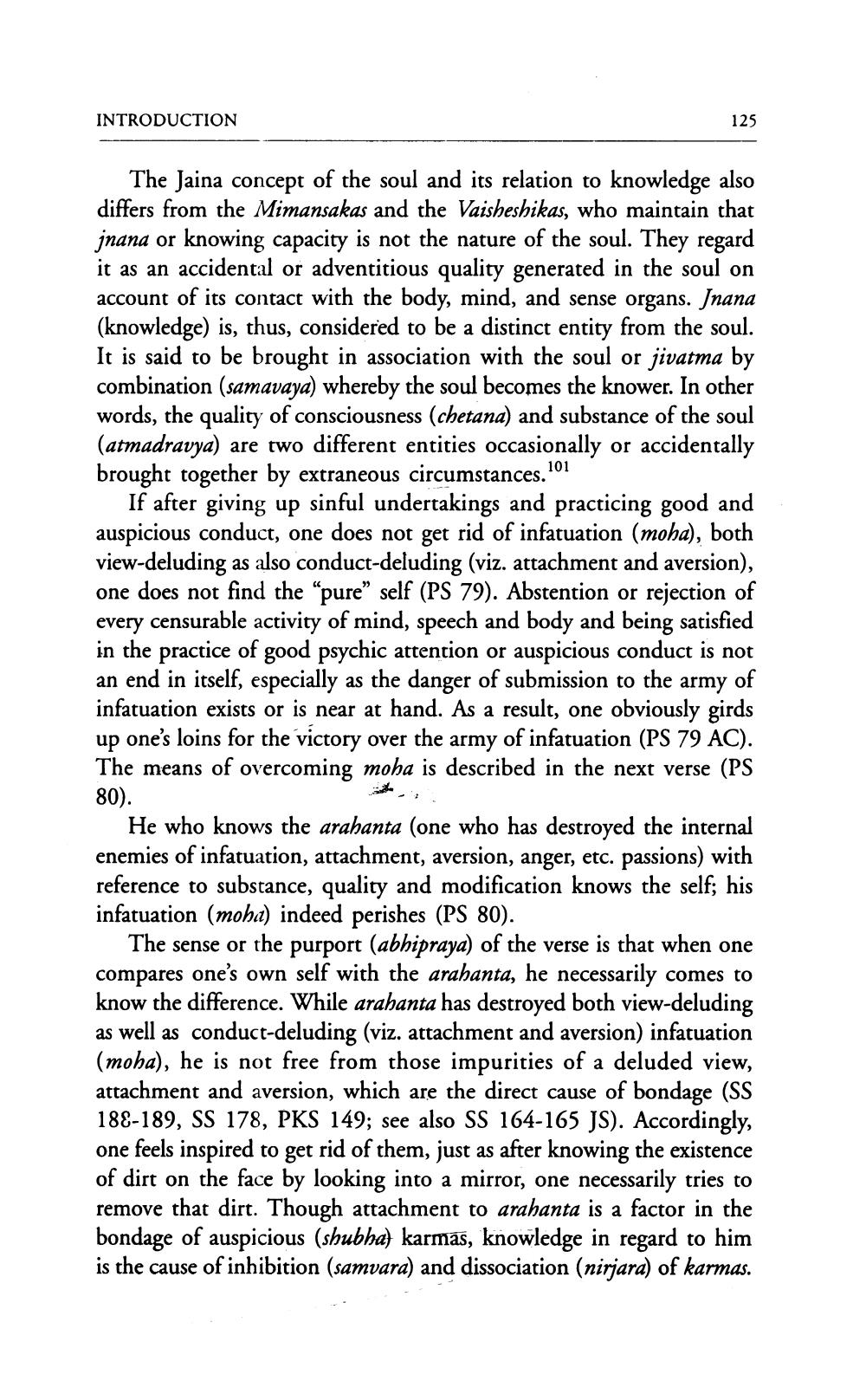________________
INTRODUCTION
125
The Jaina concept of the soul and its relation to knowledge also differs from the Mimansakas and the Vaisheshikas, who maintain that jnana or knowing capacity is not the nature of the soul. They regard it as an accidental or adventitious quality generated in the soul on account of its contact with the body, mind, and sense organs. Jnana (knowledge) is, thus, considered to be a distinct entity from the soul. It is said to be brought in association with the soul or jivatma by combination (samavaya) whereby the soul becomes the knower. In other words, the quality of consciousness (chetana) and substance of the soul (atmadravya) are two different entities occasionally or accidentally brought together by extraneous circumstances. 101
If after giving up sinful undertakings and practicing good and auspicious conduct, one does not get rid of infatuation (moha), both view-deluding as also conduct-deluding (viz. attachment and aversion), one does not find the “pure” self (PS 79). Abstention or rejection of every censurable activity of mind, speech and body and being satisfied in the practice of good psychic attention or auspicious conduct is not an end in itself, especially as the danger of submission to the army of infatuation exists or is near at hand. As a result, one obviously girds up one's loins for the victory over the army of infatuation (PS 79 AC). The means of overcoming moha is described in the next verse (PS 80).
He who knows the arahanta (one who has destroyed the internal enemies of infatuation, attachment, aversion, anger, etc. passions) with reference to substance, quality and modification knows the self; his infatuation (moha) indeed perishes (PS 80).
The sense or the purport (abhipraya) of the verse is that when one compares one's own self with the arahanta, he necessarily comes to know the difference. While arahanta has destroyed both view-deluding as well as conduct-deluding (viz. attachment and aversion) infatuation (moha), he is not free from those impurities of a deluded view, attachment and aversion, which are the direct cause of bondage (SS 188-189, SS 178, PKS 149; see also SS 164-165 JS). Accordingly, one feels inspired to get rid of them, just as after knowing the existence of dirt on the face by looking into a mirror, one necessarily tries to remove that dirt. Though attachment to arahanta is a factor in the bondage of auspicious (shubha) karmas, knowledge in regard to him is the cause of inhibition (samvara) and dissociation (nirjara) of karmas.




